Oshi ga Budoukan Ittekuretara Shinu – 01
There’s a fundamental problem with these shows for me, and it’s one I’ll never get past until we get one that acknowledges it (which is to say, never). The whole premise the idol thing is built around – this series, others like it, the idol industry itself – is simply wrong. This is not healthy – not for the idols, and not for the fans waiting seven hours in a smelly stairwell in summer heat to piss their money away on a 5-minute “meeting” with them. It’s a dysfunction that demeans everyone concerned.
For what it is, I’m sure Oshi ga Budoukan Ittekuretara Shinu is fine. At least, not especially egregious. But it’s not for me and I can be only be honest and say I don’t think it should be for anybody. Making the main raging fanboy for a girl group a woman is a minor twist, I suppose, but is it in any way interesting? Does it in any way change the formula? No.
About the only series I ever saw which felt, for a brief eyeblink in cosmic time, as if it might take a more jaundiced approach to this topic was Wake Up! Girls. It didn’t of course – that was just a feint, which makes the series and its progeny actually more insidious than shows like this which make no pretense at being anything but what they are. That’s the kindest thing I can say about Oshi ga Budoukan Ittekuretara Shinu – it’s honest and unpretentious about what it is.
Housekishou Richard-shi no Nazo Kantei – 01
Our second premiere could hardly be more different, starting with the fact that I liked it. I mean, really liked it. A lot. It’s also smart, quiet, subtle and not at all pander-y. The “winner” of the LiA Winter poll, Housekishou Richard-shi no Nazo Kantei was nevertheless a series I had modest expectations for going in – largely because I knew nothing of the source material and that the source material is a light novel. But even in this day and age, there are light novels and there are light novels. The Case Files of Jeweler Richard is published under the Orange Bunko imprint, which targets adult women and fancies itself a “literary” publication. Normally I’d be dismissive of such puffery, but the truth is it shows.
Another factor in this show’s favor is the director, Iwasaki Tarou. Looking at his resume it’s clear he was a wanted man at the power studios – Gainax, Bones, Madhouse, and especially Brain’s Base. And like many Brain’s Base creators he’s ended up at Shuka. In point of fact the staff for “Richard” is to a surprising degree jam-packed with talent (a lot of them worked on Hunter X Hunter 2011, actually). This premiere isn’t flashy but the graceful nature of the narrative is striking – it flows like a river from start to finish, cogently telling its story without the need for clumsy exposition.
The two main cogs in the wheel here are the titular jeweler (actually appraiser, mostly) Richard Ranashinha de Vulpian (Sakurai Takahiro) and the justice-loving college student Nakata Seigi (Uchida Yuuma). The name “Seigi” actually means “justice” and as for Richard’s name, it’s apparently Sri Lankan. The two have a chance meeting when Seigi saves Richard from some gaijin-baiting drunk salarymen, but it seems more fate than chance when Seigi introduces his grandmother’s Padparadscha (pink sapphire) ring into the equation. He asks Richard to appraise it, but both men know more about this ring than they’re letting on.
It’s asking a lot to overlook the coincidence that the jewel in that ring was mined in Richard’s homeland and that he happened to know the woman it had been stolen from, but if you can get past that this is a really engaging story. It winds its way from Tokyo to Kobe (my very neighborhood, in fact), and from the present to the middle of the last century – a time when both Seigi’s grandmother and the woman she stole the ring from were trapped in Japan’e paternalistic bear trap (it’s bad now – it was even worse then). Richard even buys some thinly disguised 501 Horai nikuman for Seigi to bring as a peace offering to his mother – right before inviting him to come work in his office (and soon to be shop).
All this is told with a great sense of dignity and thoughtfulness, two qualities exceedingly rare (as rare as jousei in fact) in anime these days. There’s an obvious place on the schedule for a show like this – the one filled by the likes of Mayonaka and Youkai Apato and Kyoto Teramachi Sanjou no Holmes. It’s too early to tell yet whether Housekishou Richard-shi no Nazo Kantei has the chops to join their ranks, but based on the first episode I’m feeling fairly confident.


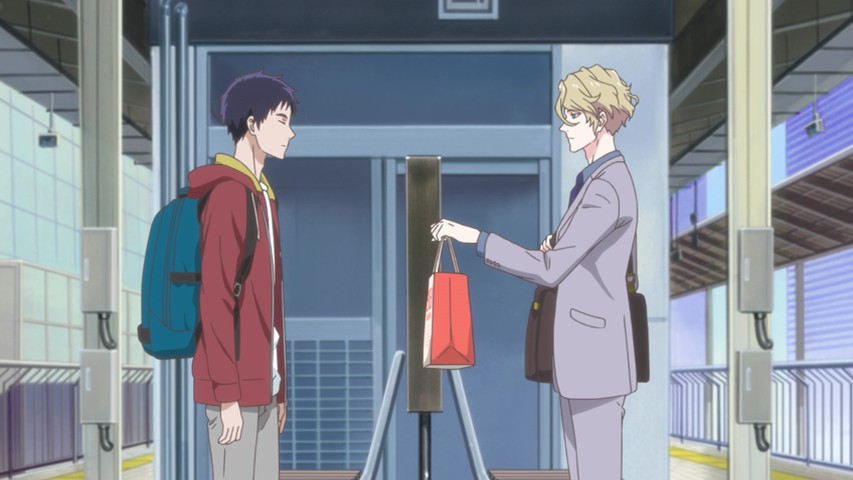





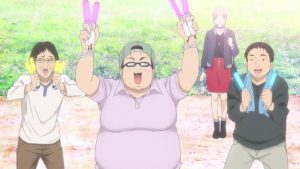


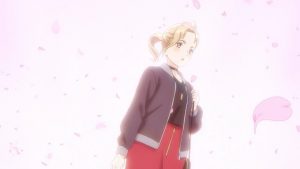
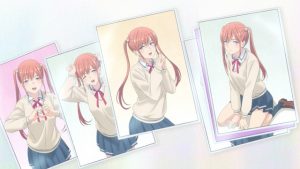
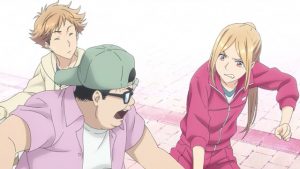
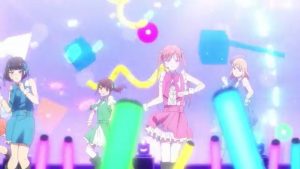


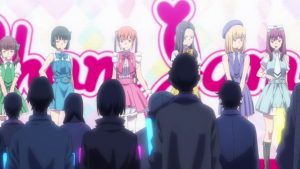

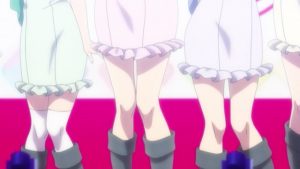
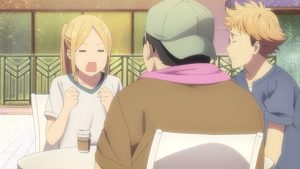
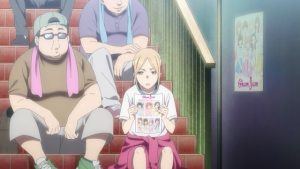
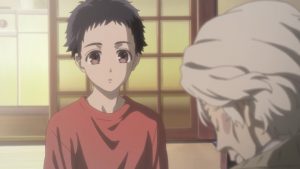
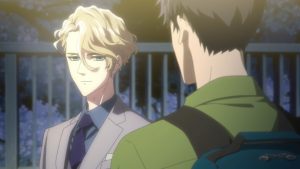
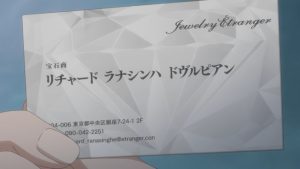
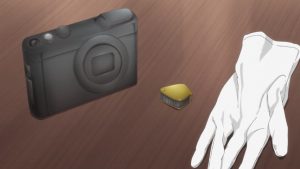
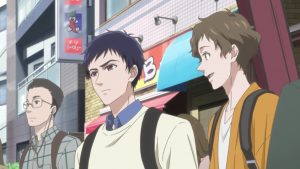
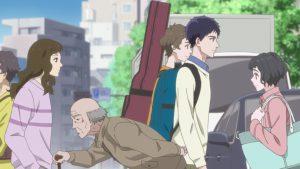




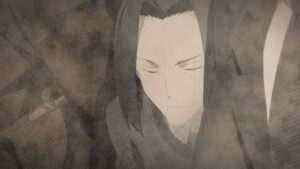
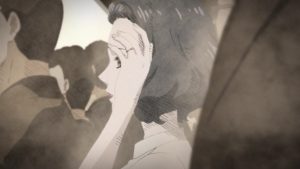
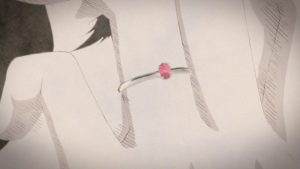
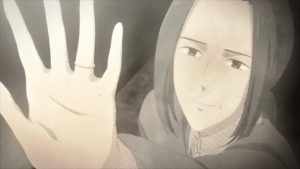
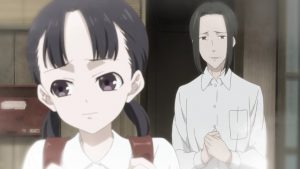



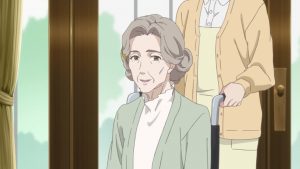
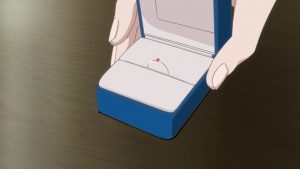
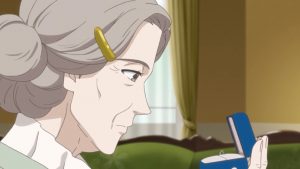
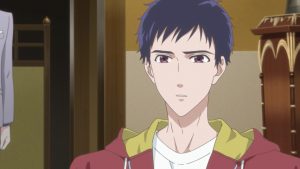

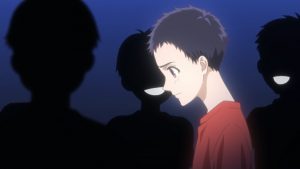
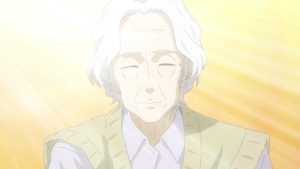







animealex
January 11, 2020 at 1:06 amThis is the second show after Pet where I can quite confidently say, I’ll watch this to the end. I feel like it’s not a series where I will be blown away by a sudden revelation or plot twist, but entertained by seeing a mystery story unfold through a human eye. (Huh, that sounds rather pretentious.) And like Enzo my first association where indeed shows like Yokai Apartment and Mayonako no occult.
Just a quick question if I understand the end right: Richard and Seigi are doing away with the honorifics (yobisute it’s called, I think?) at the beginning of their official working relationship. Isn’t that highly uncommon / unconventional after such a short time of knowing each other? Is that like: “Hey, work for me as an assistant and helper for everything but I want us to treat each other like friends of equal standing.” Sorry, I’m not so big on understanding the nuances with honorifics here. Usually I expect yobisute when friends get closer or there is a romantic turn of events, but I didn’t get any “shipping vibes” or think of them even as friends, more like acquaintances who might become friends in the future. Is it acceptable to behave this way, because Richard is a foreigner? I don’t know why this detail stuck with me (along with the weird way of Seigi addressing his mother, where we got an explanation).
Guardian Enzo
January 11, 2020 at 9:37 amYes, it is unusual. The superficial explanation is that it’s because Richard is a foreigner, but it could if one were so inclined (and given where this is published, it’s possible) infer something romantic there.
animealex
January 11, 2020 at 2:07 pmThank you for the answer.
Derrick
January 11, 2020 at 3:34 pmyea we need more seinen and jousei, in fact I’d like a done right isekai for seinen
dbp
February 5, 2020 at 11:26 amI thought Oshi ga Budoukan was being quite critical by stripping all the nasty awkward stuff bare on both sides of the divide, but ok i guess. The whole premise is that being idol and fan is preventing them from having a real relationship.